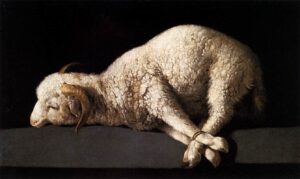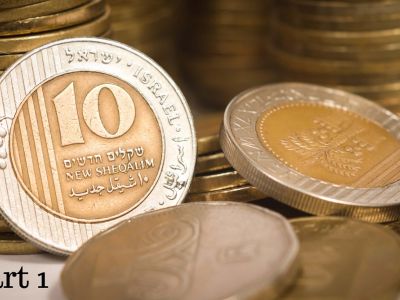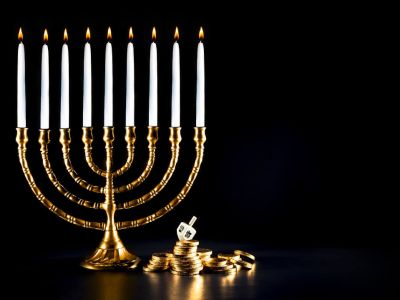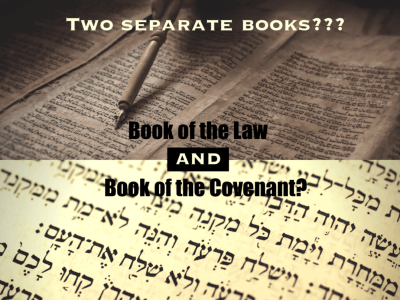L.E.A.D. – What’s In Your Sacrifice?
L.E.A.D. – What’s In Your Sacrifice?
What’s In Your Sacrifice?
There are five main types of sacrifice in the Torah, each one serving a specific purpose: the burnt offering (olah); the meal offering (terumah); the peace offering (shalom); the sin offering (hatat), and the trespass offering (asam). We do not practice these sacrifices today as they are written in the Scriptures for several reasons: there is no temple in which to offer them, there is no Levitical priesthood, and most importantly, they were fulfilled by the work of Yeshua Messiah, but this doesn’t mean that their purpose has been done away with. The sacrifices still have profound relevance to our lives today, and we can still make these offerings ourselves through the sacrifices we make in our lives and the obedience that we give to God through following His ways and observing His appointed times (Deuteronomy 16:16-17, Luke 10:5-7, 1 Corinthians 9:11-14, 1 Timothy 5:17-18).
 In a literal sense, the sacrificial system was implemented for Israel so that they could remain in a physical and spiritual state of cleanliness that would allow God’s Shekinah presence to dwell amongst them, but the implications of what each of the sacrifices represents stretch far further than simply being about purification. The sacrifices remind us that we depend on YHWH for everything, which produces a strong faith and teaches us that we must express our gratitude through our actions and not just words. They demonstrate that sin has a consequence and that restitution must be made with God and the people we have sinned against to reinforce the love that ties the community together. The sacrifices also encourage a system of ministry in which those who are spiritually supporting the community are physically supported by those people so that the focus of their time can be on ministering and not working the land to help themselves.
In a literal sense, the sacrificial system was implemented for Israel so that they could remain in a physical and spiritual state of cleanliness that would allow God’s Shekinah presence to dwell amongst them, but the implications of what each of the sacrifices represents stretch far further than simply being about purification. The sacrifices remind us that we depend on YHWH for everything, which produces a strong faith and teaches us that we must express our gratitude through our actions and not just words. They demonstrate that sin has a consequence and that restitution must be made with God and the people we have sinned against to reinforce the love that ties the community together. The sacrifices also encourage a system of ministry in which those who are spiritually supporting the community are physically supported by those people so that the focus of their time can be on ministering and not working the land to help themselves.
The idea of sacrifice in the Tanakh (what many know as the Old Testament) is to do with substitution, a picture illustrating to us that there is a severe need for mercy and sacrifice in any relationship, especially with God but also with our fellow man. These elements create a deeper covenant, ultimately pointing towards the epitome of perfect substitution, Yeshua HaMeshiach (Hebrews 10:1-24). Salt, used as a preservative, was added to each sacrifice to symbolize corruption, making the statement that through God, we are incorruptible and that our offering transcends this world (Mark 9:49-50). Still, it is the fire that genuinely creates the incorruptibility. Putting all this together, it shows us that when we lay ourselves down on the altar as a living sacrifice (Romans 12:1), we are permitting God to make the corruptible incorruptible through the work of our High Priest Yeshua. So, let’s look at each of the offerings, how Yeshua fulfilled it and how we can also fulfill the sacrifice in our lives today.
Burnt Offering (olah):
The burnt offerings were always offered of the herds (the exception being made for poverty, in which case the people could provide turtledoves with or pigeons), but with the sanction that they must be male, perfect and unblemished, free from any defilement or disease. The animals were always killed before the door of the Tabernacle and then wholly consumed in the fire of the altar, the blood being sprinkled around the altar itself (Leviticus 1:3-9, Deuteronomy 33:10). Yeshua was male (Matthew 1:21), without the blemish of sin (1 Peter 1:22-23), offering Himself voluntarily (John 10:18, Matthew 25:46) to be sacrificed ‘before the Lord’, many believing the crucifixion to have happened in a place with a direct line of sight to the open doors of the temple, after which He was wholly consumed (Mark 12:33) and His blood sprinkled upon the altar (1 Peter 1:2).
Just as the burnt offering was lifted morning and evening, we can also offer our prayer in the morning and evening, giving our day and night to God. We can give ourselves entirely to YHWH, voluntarily giving our mind, will, and emotions over to Him (especially when we find ourselves in stressful situations) and allowing Him to take control in all aspects of our lives, ensuring that we live purely for His will and to carry His Gospel to the world (Mark 12:33 & 16:15-16, Romans 12:1, 1 Corinthians 15:31).
Meal Offering (terumah):
The meal offering was a voluntary offering for ministry purposes, usually made as a tribute after the burnt offering and offered as cakes of fine flour with oil, salt, and unleavened bread. Along with this was a drink offering, poured out at the altar’s base. The offering excluded leavened bread due to its association with sin and the addition of honey, which was often used to produce fermentation and thus would have had the same effect on the bread as leaven. According to experts on the ancient temple practices, the priests would assist the person offering by placing his hands under those of the person making the offering and making the motions up, down, left, and right, helping that person lift their offering to God, just as Yeshua assists us.
Messiah’s fulfillment of this sacrifice can be seen in that He was the Bread of Life (John 6:48), with no leaven of arrogance or sin in His life, the oil representing the Holy Spirit that was present with Him and the salt illustrating how the Word Made Flesh preserves us from corruption. He even compared Himself to a grain of wheat dying so that it could live again (John 12:23-25), crushed for our iniquities, and offered to God in our place (Isaiah 53:10). To fulfill this in our own lives, it is a matter of honoring God in thanksgiving, especially before each meal and when we are given new abundance (new blessings, increase of income, etc.), showing Him that we recognize where our sustenance and acceptance has come from. When we offer ourselves as that sacrifice, we must be unleavened, without sin, and provided for ministry purposes as part of the work that must be done for God’s kingdom to grow.
Peace Offering (shalom):
The peace offering was voluntary and was one of fellowship, the purpose of which was to re-establish communion with YHWH. It was offered after completing a vow, as an offering of thanksgiving or simply a freewill offering, coming from the abundance of the heart and was often raised at joyous times. The blood, fat, and kidneys of the animals offered always went to God on the altar, and the breast and right shoulder went to the priest. Notably, this offering could include leavened bread, unlike the burnt offering.
Through reconciling God to man and making peace, unifying the world through His work, Yeshua fulfilled this offering (Romans 5:1-7, Colossians 1:20). Still, without Him, there can be no shalom, communion, or connection to God (John 14:6). When we find ourselves blessed or in a joyous occasion, simply by offering our gratitude and the obedience that shows we understand what God has done for us, we go some way to fulfilling this sacrifice in our lives. When someone does something that pleases us, we can give back to them something that expresses our thankfulness better than mere words. Most significant, however, is that if we genuinely offend God or someone else, instead of just saying ‘sorry,’ we offer something of ourselves to make restitution, something that actively brings peace to the situation and not simply an acknowledgment of wrongdoing.
Sin Offering (hatat):
The sin offering, made outside the camp, was to be an animal of the herd or flock, just like the burnt offering, although which animal depended on who you were: if sacrificed for the high priest or the whole nation, it would be a young bullock; if for a king or prince, the animal would be a young male goat; for individuals, a female kid (goat) or lamb and for those unable to afford one of these animals, turtledoves or pigeons could be used in substitution. In fact, this offering was so essential that there was even an allowance for those who couldn’t afford animals. Instead, those people are permitted to bring a tenth of an ephah of fine flour as their offering. This offering highlighted the severe effects of sin on one’s relationship with God and the importance of making atonement for unintentional sin. Thus, the person offering would come before God as a sinner and not a worshipper, seeking to complete restoration for what damage their sin had caused to their connection to God. As such, this was an offering that required confession and acknowledgment of wrongdoing.
Physically, Yeshua’s sacrifice was in line with the commandment in Torah, being killed ‘outside of the camp,’ beyond the walls of Jerusalem (Hebrews 13:11-13), but this was also the culmination of His work in dealing with the nature of sin as something that separates us from YHWH. Yeshua’s ministry and sacrifice were about teaching us how to make restitution with God and our neighbor, but at the same time, providing us with that perfect substitution so that we could be cleansed and free to re-establish our communion with God more potent than ever (2 Corinthians 5:21). His death and resurrection have allowed us all to address the sin in our lives so that we can reconnect to God and better witness His glory to the world through the examples of our lives and not just our words.
Trespass Offering (asam):
Restitution is an essential part of being in a relationship with God, making whole what has been damaged; there are many commandments in the Torah relating to this, such as in Exodus 22 relating to livestock. The primary purpose of the trespass offering was making restitution for sin, whether intentional or unintentional, but focusing on the actual sin itself and how it affects other people. For example, in the case of trespassing against someone else’s property, what was stolen would have to be returned along with an additional twenty percent added to the value (Leviticus 6:2-5). Following the restoration between individuals, an offering would then be made to God.
Yeshua paid a debt for us, a debt required by God’s Law, but that we couldn’t ever have hoped to pay (Romans 3:23). In fact, in John 19:30, when Yeshua declares that “it is finished,” the word translated as ‘finished’ is the Greek word ‘testeletai’ (G5055), aside from meaning things like ‘fulfill,’ ‘complete,’ ‘do as commanded,’ is also commonly used as a financial term meaning ‘to pay in full. Yeshua paid our price, the wages of sin that we had earned through our iniquity, but now we have been freed to carry on as new people with a better understanding of our part in the work of the Kingdom. We fulfill the commandment of this trespass offering through taking responsibility for our sin and admitting when we are in error so that we can make restitution but given with the added extra that ensures adequate compensation and always with an offering made to God to make peace with Him too. Overall, we must focus on learning how to properly love our neighbor so that we can minimize the risk of bringing the trespasses of others on ourselves or creating the relationship-damaging problems that make the need for restitution in the first place.
The word ‘shalom’ is commonly used as a greeting amongst God’s people, wishing others peace-seeking it in our own lives too, but, significantly, the word Shalom (H7965) is more accurately translated as ‘completeness.’ If we are to have peace in our relationships, we should not only express love and gratitude but also look to ensure that nothing is missing or broken and that there is wholeness. We depend entirely on God for everything, and we owe Him more than just saying ‘thank you or ‘sorry’ because words are not enough to replace what is missing. Although we don’t use the sacrificial system as it is written in the Torah anymore, we can still use the principles behind them to show God and the people around us how much we value and respect them, whether in giving thanks, making voluntary offerings and sacrifices of ourselves, or simply making our relationships whole and restoring whatever is broken. We can show the heart of YHWH by seeking to be living sacrifices, putting Him and other people first, and by making every breath, every word, and every deed an offering to Him and a contribution to the growth of His Kingdom.
Shalom,
Jim Staley

Jim Staley
About The Author
Jim’s life’s desire is to help believers everywhere draw closer to the Father by understanding the truth of the scriptures from their original cultural context (a Hebraic perspective) and to apply them in faith for today.











